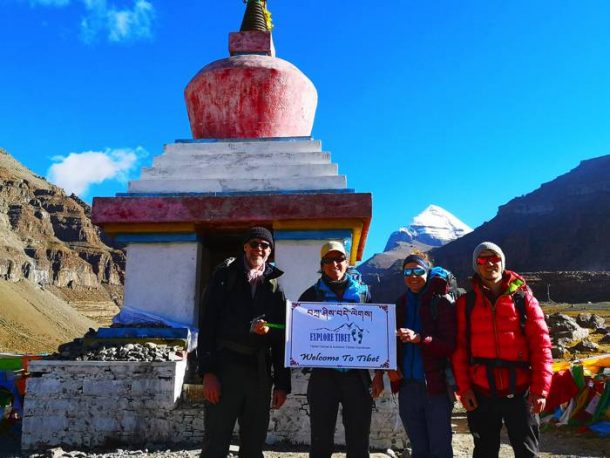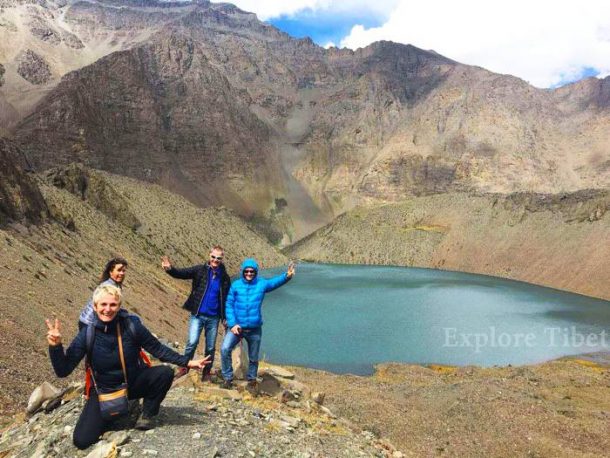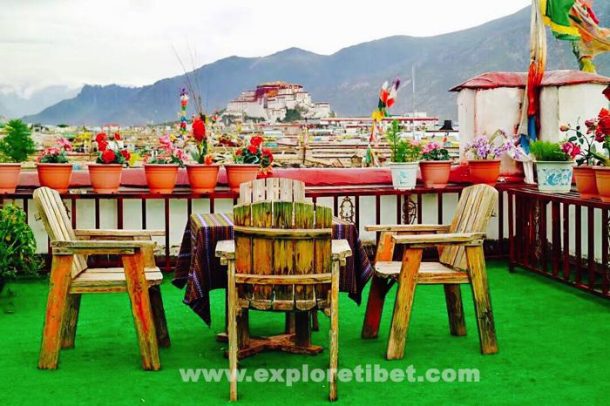Things You Might Not Know for a Tibet Tour
Traveling to Tibet is very different from anywhere else on the planet. This unique destination has some rules and requirements that you will not find with other holiday destinations, both in Asia and around the world. As an autonomous region of China, Tibet is a destination that requires certain permits and passes to get to, as well as a few guidelines that can help you with your trip to the roof of the world during Tibet tour.

Tibet Tours -Explore Tibet
A hugely Buddhist destination, the culture is also unlike any other, with their own version of Buddhism that has developed over the thousand years since it was first introduced to the plateau, taking over from the ancient animistic religion known as Bon. So here are a few hints and tips to help you make sure that your trip to Tibet is the best adventure possible.
Table of Contents
Single Chinese Visa is not enough for Visiting Tibet
While you will need the Chinese Entry Visa in order to get into China and Tibet is a part of China, there are other documents that you will need in order to get to Tibet, unlike any other area of China that you may decide to travel to Tibet. The main permit required is the Tibet Travel permit, which allows you to get into the region and travel around the area of the capital, Lhasa.

Tibet tours with Explore Tibet
The Tibet Travel Permit is the most important document you will require, as you cannot even board the train or flight to Tibet without it, and it cannot be obtained personally. The only way to get the permit is to book a tour with a registered Tibetan tour operator, who will make the permit application on your behalf. Once you have booked your tour with us, we make the application for the Tibet Travel Permit using scanned copies of your passport and Chinese Entry Visa to the Tibet Tourism Bureau (TTB) in Lhasa.
The processing time for the permit is normally around 15-20 days, so it is essential that you book your trip early enough to allow us to obtain your permit before you leave for Tibet. Once it is received from the TTB, we will forward it to your hotel in China, ready for your trip to Lhasa and the Tibetan plateau. If you are flying, then we will send the permit by courier to your hotel, as the original permit is required to board the plane. However, if you are traveling by train, a scanned copy will suffice, and we can send this to your email address for you to print and show to the station officials and train guards.
Impromptu travel is not possible in Tibet
If you are thinking of traveling to Tibet on your own, then you will have a problem getting into the region, as there is no longer any allowance for independent travel in Tibet. All travelers to Tibet must book their trip through a registered Tibetan tour operator, who will provide the required Tibet Travel Permit, guide, driver, and private vehicle for your trip.
If you are already in China, and suddenly decide you wish to visit Tibet, then you may find you will have to wait for sometime to get the Tibet Travel Permit for the trip. With a processing time f around 15-20 days, it is often impossible to arrange on the spur of the moment, which makes Tibet a destination that you cannot decide to travel to as an impromptu trip whilst already in China. However, if you are prepared to wait in China while we make the arrangements, and your visa is valid for enough time, then it is possible.
There is only one international flight to Tibet
While there are plenty of flights to Tibet from across China, there is only one international airport that has direct flights to Lhasa. Tribhuvan International Airport, in Kathmandu, Nepal, is the only airport authorized to offer international flights to Lhasa and is one of the most popular departure locations for trips to Tibet. Kathmandu has connections to plenty of other international destinations and is an easy airport to fly into from all across Asia, as well as several locations around the rest of the world, though there are no direct flights to Kathmandu from the United States, the United Kingdom, or mainland Europe.
There are only a few flights from Kathmandu to Lhasa Gonggar International Airport daily, which are offered by Air China, Sichuan Airlines, and Tibet Airlines. Usually, there is only one flight per day to Lhasa from Kathmandu, although, in the peak months of summer, this is often increased to cater for the higher volume of passengers. Flights cost from around 250 US dollars per person for a one-way economy flight, although it is often a little cheaper to book the return flight at the same time.
Different Travel Seasons for Tibet Travel
Just like any other tourist destination, Tibet has high and low tourist seasons, and the cost of travel and tours depends on when you are traveling. The peak season in Tibet runs from June to September, when the weather is hottest, though this is also the monsoon season on the plateau. The low season is normally from December to March, which is the winter in Tibet. There are also two shoulder seasons, which are the preferred seasons for trekking in Tibet, which run from April to May and October to November, the spring and autumn in Tibet.

Western tourists in Tibet during Tibet tour with Explore Tibet Travel Company
There is also a time period during which international travel to Tibet is prohibited. The period of the Tibetan New Year, known locally as Losar, usually runs from around mid-February to the end of March and is a time when international travelers are not permitted to enter the region. Tibet Travel Permits are not issued for this period, which starts around a week before the date of Losar, and runs until the festivities are all completed. Tibet then reopens at the beginning of April, ready for the start of the tourist season.
Lhasa has more luxury hotels than you expect
While Tibet may appear to be a third-world region, with vast expanses of desolate landscapes, high snow-covered mountains, and remote villages and settlements where many Tibetans live in much the same way as their ancient ancestors, Tibet does have a great deal of good accommodation available in the major cities.

Tibetan hotel in Lhasa
Lhasa, the capital of the region, is widely known for its great hotels, and in the last 20 years, many of the major hotel chains from around the world have opened luxury hotels in the city, including the Sheraton Chain, the Intercontinental Chain, the Shangri-La Chain, and the St. Regis Chain. With such a wide variety of luxury hotels to choose from, your trip to Lhasa does not have to be basic and minimalist.
Tibetans do not eat fish
One of the local taboos in Tibet is the eating of fish. Meat is one of the staples of the Tibetan diet, but a dog, horse, donkey, and fish are the exceptions to the rule. In Tibetan Buddhism, fish are widely regarded as the incarnations of the gods of the water in which they reside, which makes eating fish a sin in the religion. As with many of the smaller animals, such as snakes and rodents, it is believed that only demons and devils will eat such creatures as a way to remove he godly incarnations from the earth.
Tibetans also have water burials, as well as sky burials, and the fish perform much the same task as the vultures that eat the dead bodies in a sky burial. In a water burial, the body is consigned to the lake of their choice, and the fish in the lake dispose of the earthly body of the person, allowing the soul to continue on into its next incarnation, or to go on to heaven if they are lucky and good.
Recent Posts
The Ultimate Guide to Tibet Tours, Travel, and Trekking Adventures
How to Explore Tibetan Culture
Exploring Lhasa:The Heart of Tibet
All Categories
- About Tibet
- book a Tibet tour
- Buddhism Practice
- Budget Tour
- China-Tibet Train
- Customized Tibet tour
- Historical Sites
- Hot Springs in Tibet
- News
- Photography in Tibet
- Tibet attraction
- Tibet Group Visa
- Tibet Motorcycle Tour
- Tibet Small Group Tours
- Tibet Tours and Tibetan Tour Guide
- Tibet Train
- Tibet Travel FAQs
- Tibet Travel Information
- Tibet Travel News
- Tibet Travel Permit Update
- Tibet Travel Prices Rises
- Tibet Trek
- Tibet Trekking Tour
- Tibet weather and climate
- Tibet Wildlife animals
- Tibet Winter Tour
- Tibetan Buddhism
- Tibetan Cultural Features
- Tibetan Culture and Poeple
- Tibetan Festivals
- What to see in Tibet



